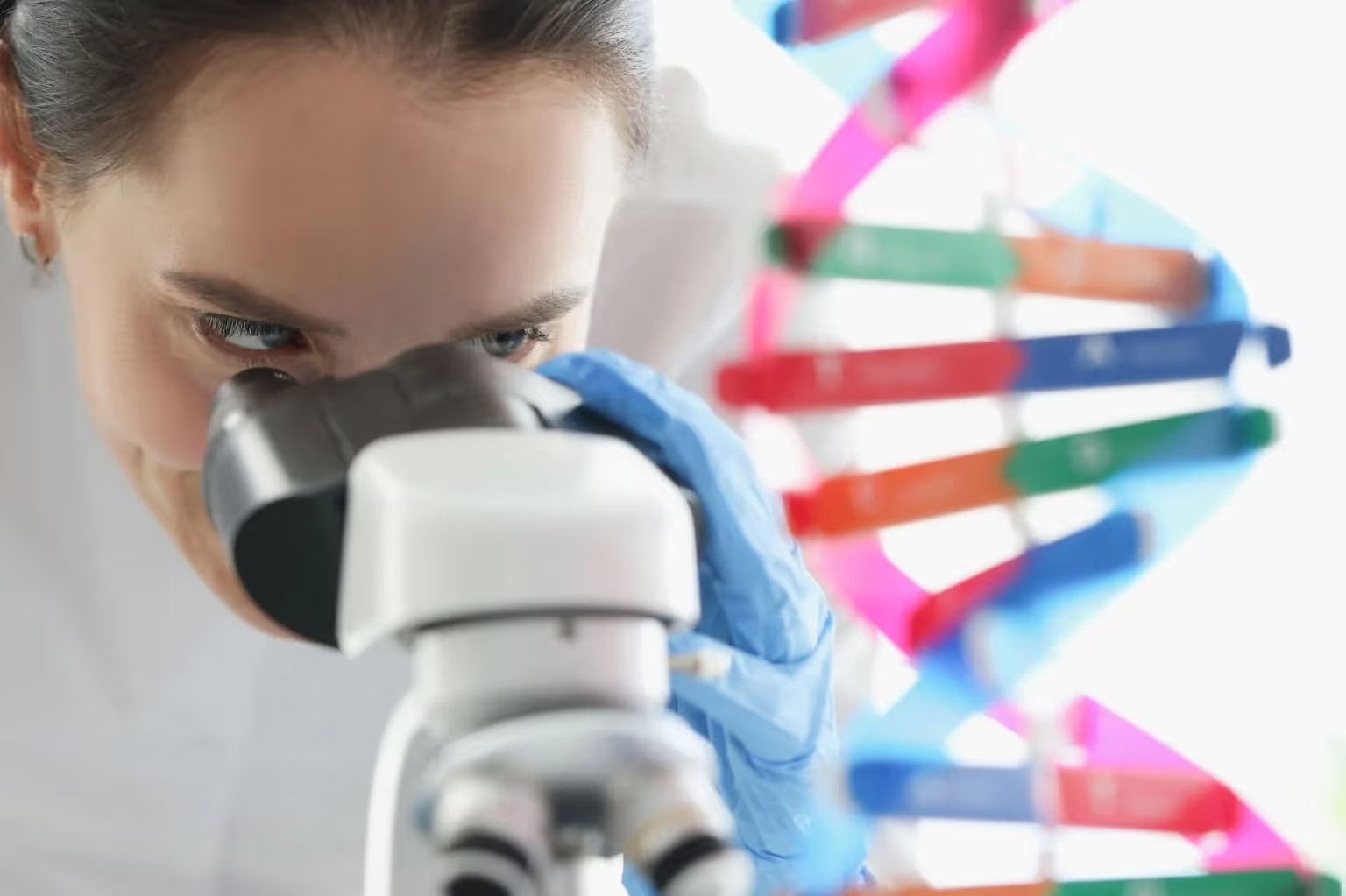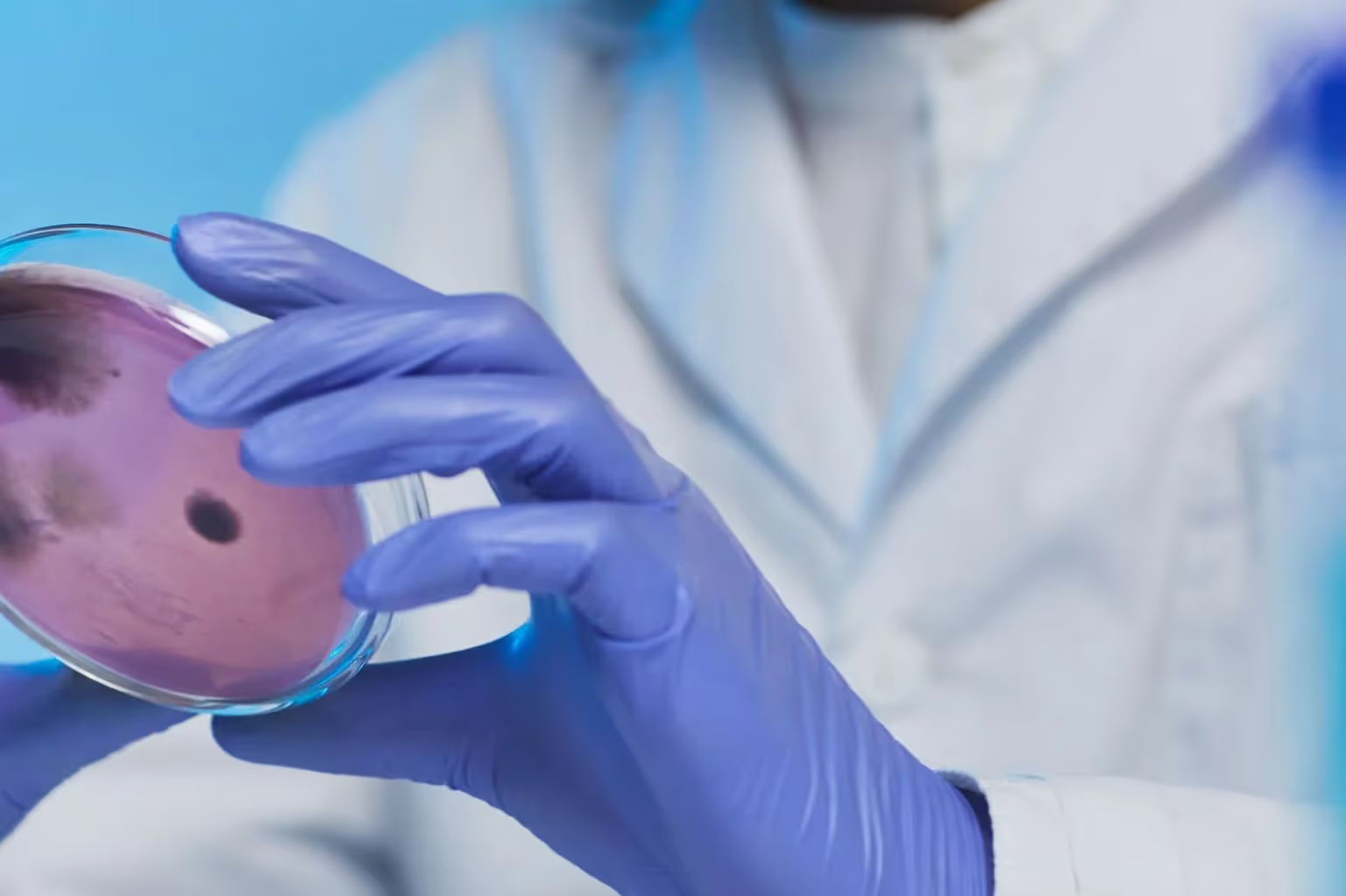The Ultimate Guide to Newborn Screening
Newborn screening is the process of testing newborns for specific genetic, metabolic, endocrine and other disorders shortly after birth.
Its aim is to catch health issues early on, allowing for quick intervention to prevent serious complications. This early detection improves long-term health outcomes and quality of life for affected infants (Ozben, 2013).
Importance of Newborn Screening

Here are the key reasons and benefits of early disease screening newborns:
- Early diagnosis through screening allows for treatments that greatly improve children's health and development (Bamforth).
- Technological advancements, like electrospray ionization mass spectrometry introduced in the 1990s, have made it possible to identify up to 60 disorders from a single test.
- Early detection and treatment of health conditions will lower healthcare costs by avoiding expenses from late-diagnosed conditions and their complications.
- Advances in genomic technologies, such as genome sequencing, have the potential to extend newborn screening to hundreds of conditions (Spiekerkoetter et al., 2023).
Fore Genomics offers enhanced newborn screening by mapping newborns' full genetic profiles using a simple saliva swab to understand their risk for hundreds of diseases. Get started with us today.
7 Types of Conditions Screened for in Newborns
1. Metabolic Disorders
Metabolic disorders are a group of conditions that affect how the body processes substances, causing harmful build-ups that impact health.
Some examples of metabolic disorders include:
- Phenylketonuria (PKU): A condition where the body can't metabolize phenylalanine, an amino acid, leading to its build-up in the body. Without treatment, PKU can cause intellectual disability.
- Maple Syrup Urine Disease (MSUD): This disorder prevents the breakdown of certain amino acids, causing a maple syrup odor in urine and potentially leading to brain damage.
- Medium-chain Acyl-CoA Dehydrogenase Deficiency (MCADD): MCADD affects the body's ability to break down certain fats into energy, especially during fasting. This leads to low blood sugar, seizures, and even death.
2. Hemoglobinopathies
Hemoglobinopathies like sickle cell disease (SCD) and thalassemia syndromes are inherited blood disorders. They cause issues with the hemoglobin molecule's structure or production.
- SCD happens when there's a change in the hemoglobin gene, making abnormal hemoglobin S (HbS). This makes red blood cells look like sickles, which can block blood vessels and cause pain, infections, and organ damage. Treatments include prophylactic antibiotics and vaccines.
- Thalassemias are genetic problems where one of the two globin chains in hemoglobin isn't made enough. This causes anemia and other health issues. Regular blood transfusions and iron chelation therapy are done to prevent further complications.
3. Endocrine Disorders
Endocrine disorders include conditions like congenital hypothyroidism (CH) and congenital adrenal hyperplasia (CAH).
- Newborn screening for CH measures thyroid-stimulating hormone (TSH) and sometimes thyroxine (T4) in blood spots. Abnormal TSH and T4 levels suggest CH, leading to further tests and thyroid treatment to avoid growth delays.
- CAH screening spots newborns at risk for potentially life-threatening adrenal crises. By diagnosing early through NBS, immediate treatment can be started so that the child develops normally.
Keeping hormones in balance is crucial for good health, especially during growth. When this balance is disturbed by endocrine disorders, it causes various health issues.
4. Cystic Fibrosis and Respiratory Disorders
Cystic fibrosis (CF) is a severe genetic disorder that affects the lungs and other organs. This results in respiratory infections, digestive problems, and decreased lung function over time.
NBS for CF typically involves measuring immunoreactive trypsinogen (IRT) from a blood sample taken shortly after birth.
Early detection has been shown to improve nutritional outcomes, growth, and lung function (Dijk & Fitzgerald, 2012).
While CF is the main focus of respiratory disorder screening in newborns, keep in mind that congenital adrenal hyperplasia (CAH) is not a respiratory disorder but an endocrine disorder.
It's included in NBS due to its potential life-threatening consequences if not treated early.
5. Neurological Disorders
Neurological disorders, such as Spinal Muscular Atrophy (SMA) and various Lysosomal Storage Disorders (LSDs), are also targets for early detection through newborn screening.
Their effect on neurological development is serious.
- SMA is an autosomal recessive disorder where motor neurons in the spinal cord break down, causing severe muscle weakness and wasting. It’s caused by the changes in the SMN1 gene.
- LSDs are caused by enzyme deficiencies, affecting the breakdown of substances in the lysosome. This leads to a buildup of toxic materials, resulting in various symptoms, including severe neurological issues.
Parents and healthcare providers need to watch for signs of neurological issues in infants as NBS doesn't catch everything.
6. Genetic Syndromes
Genetic syndromes such as Down Syndrome and Turner Syndrome are chromosomal abnormalities that impact health, development, and quality of life.
Down Syndrome is the most common chromosomal condition diagnosed in the United States, affecting about 1 in every 700 babies (CDC, 2023). It results in intellectual disabilities, distinctive facial features, and heart defects.
Turner Syndrome affects about 1 in 2,500 live female births (Nemours Children’s Health, 2021). It leads to short stature, delayed puberty, infertility, and heart defects. Growth hormone therapy can be started at an appropriate age for children with Turner Syndrome to help improve their development.
Regular health check-ups and monitoring help prevent and manage potential complications associated with these syndromes, such as congenital heart disease.
7. Hearing and Vision Impairments
Spotting sensory issues early lets us start help soon, which can boost kids' language skills, school performance, and social development.
Hearing loss is one of the most common congenital conditions.
Children who undergo early hearing detection and intervention (EHDI) programs achieve better language skills compared to those who are diagnosed later.
While less common than hearing loss in newborns, early detection of vision impairments is just as important. These impairments include congenital cataracts, glaucoma, or retinal disorders.
For hearing loss, interventions include speech therapy, use of sign language, cochlear implants, or other communication devices.
For vision impairments, interventions range from corrective lenses to surgery, accompanied by orientation and mobility training, and other visual rehabilitation services.
Here is a complete list of disorders included in California-based newborn screening, as of October 2020.
You Might Like: How do I Give My Child a Lifetime of Precision Medicine?
How Newborn Screening Works

1. Hospitals screen newborns by taking a small blood sample from the baby's heel within 48 hours of birth (Genetic Alliance, 2010). At Fore Genomics, we offer a more comprehensive test that checks for many more health conditions using genomics, giving parents and doctors a fuller picture of the baby's health right from the start.
2. This blood is collected on high-grade filter paper, creating what is known as a dried blood spot sample (DBSS). The filter paper preserves the sample's integrity and facilitates its transport to a laboratory.
3. Once the DBSS reaches the laboratory, it undergoes analysis for genetic, metabolic, endocrine and other disorders.
Timing impacts the screening's performance for some metabolic disorders. Samples collected within 24 hours of birth possibly affect the screening results for conditions like phenylketonuria (PKU), isovaleric acidemia (IVA), and methylmalonic acidemia (MMA) (Peng et al., 2021).
Pros and Cons of Newborn Screening

Pros of Newborn Screening
- Screening identifies health conditions early, often before symptoms arise.
- Early diagnosis through screening can lead to interventions that significantly improve or prevent health outcomes.
- Screening ensures that infants with health conditions receive prompt medical attention.
- Knowing their child has been screened and is not at immediate risk for certain health conditions will give peace of mind to parents.
- Data from newborn screening can improve research on health conditions, leading to better treatments and understanding of these diseases.
- Early screening provides a foundation for ongoing health monitoring and care, nurturing a stronger relationship between families and healthcare providers. Screening for 300+ conditions and medication interactions, Fore Genomics is at the forefront of children’s preventative care.
Cons of Newborn Screening
- The collection and storage of health information raise concerns about privacy, consent, and the potential misuse of this data.
- Knowing that a child is at risk for a health condition causes anxiety and stress for parents.
- Results could influence future family planning decisions.
- Potential for false positives, causing anxiety while waiting for confirmatory testing. Testing is also limited to currently known conditions.
Making Informed Decisions for Your Baby's Health

When choosing to supplement newborn screening at hospitals with genetic testing from Fore Genomics, consider these points:
- Know what conditions each test covers, their seriousness, and available treatments.
- Think about how your child’s genetic data will be stored and used and make sure for any genetic testing service they have appropriate guardrails around genetic data (Esquerda et al., 2020).
- Understand how the results might influence future reproductive choices and family planning (Buchbinder & Timmermans, 2011).
- Look into the expenses for any additional tests and long-term care if a condition is found.
What Happens After Newborn Screening?

When a newborn tests positive for a health condition, the follow-up process begins.
- The initial positive result requires confirmatory testing to accurately diagnose the condition.
- Once a health condition is confirmed, counseling is offered to the family. Counseling helps parents understand their child's condition better.
- Counselors explain the condition, discuss treatment options, and support parents in managing their child's health and making informed decisions.
- Depending on the diagnosed condition, various treatment options are available.
- Children diagnosed with health conditions typically require ongoing monitoring and support. This may involve regular medical check-ups, monitoring for potential complications, and support services.
Bottom Line
Parenthood comes with the responsibility of ensuring the best start for your newborn. Newborn screening is your ally in this journey, offering a glimpse into your baby's health blueprint.
With services like Fore Genomics, exploring your baby's genetic profile becomes an adventure towards securing a healthier, happier future with the most comprehensive screening available.
FAQs
What is newborn screening?
Newborn screening is a test performed shortly after birth to detect metabolic, endocrine, genetic and other disorders in newborns. It involves collecting a small blood sample from the baby's heel and analyzing it for health concerns.
Why is newborn screening important?
Screening newborns for health conditions early can help treat them sooner, avoiding major health problems and helping these babies have a better quality of life. It also provides parents with important information about their baby's health.
What is the difference between newborn screening, children’s genetic screening and genetic testing?
Newborn screening happens right after birth to quickly find and start treating health problems early. Children's genetic screening can be done in a preventative health application to detect a child’s predisposition to genetic disease and genetic testing is used to test for specific conditions when there are signs of a problem (e.g. symptoms) or known family history of diseases.


